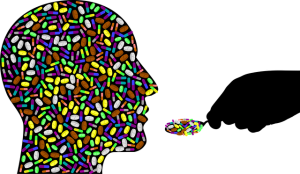While the first use of opioid pain killers is typically upon a doctor’s prescription, oftentimes prescription drugs are given away or sold to those who had not originally been prescribed the drugs.
With continued use, opioid drugs alter brain chemistry. In turn, increased tolerance develops. Tolerance is when you need more of the drug to feel an equal effect. When the opioid is taken away from the individual, or is no longer available for use, withdrawal symptoms develop. Most people spend most of their time searching for the substance they were using to avoid feeling “sick.”
There are other things that play into addiction including mental health issues and previous substance abuse issues. A history of undergoing neglect or abuse, living without financial means, being around others who use, having access to opioids, or living in a rural area also has been shown to up your chances of becoming addicted. Acting impulsively and engaging in sensation-seeking behaviors are also factors.
What is Opiate Use Disorder?
The chronic disorder of opioid addiction causes many physical and mental health difficulties as well as social and financial troubles. So, what is opiate use disorder?
- Have you begun to use opiates more often and over a lengthier period of time than you first set out to do?
- Do you have an inner intense desire to continue to use opiates even if they are no longer being prescribed to you?
- Have you spent lots of time wanting, trying to use less, or attempting to stop using opioids?
- Do you have an intense desire to engage in the use of opiates?
- Does your use of opiates come before your occupational or educational goals and work?
- Are there problems in your home life and your ability to complete responsibilities at home due to your opiate use?
- Are you still engaging in social life or isolating yourself? Have you noticed more arguing or less openness with your loved ones?
- Are you still enjoying, and participating in, your hobbies and leisure activities?
- Have you noticed yourself acting more impulsively? Has your opiate use put you in harm’s way?
- Have you experienced any mental health symptoms increasing due to your use? If so, do you use anyways?
- Have you noticed any changes in your tolerance to opioids?
- When you do not use opioids, do you experience any withdrawal symptoms after the drug has left your system?
If a lot of these symptoms match with your current state, it would be wise to seek help for a possible opiate use disorder. Trained professionals can speak with you and help you to understand whether you fit having this diagnosis as well as the next step to take.
Alternative Treatment for My Opioid Use Disorder
Discovery Place of Burns, Tennessee can help support you as you stop using dangerous opiates. We understand how much of a financial burden active addiction can be. We strive to provide cost-effective treatment and offer financing and scholarship options. We believe having fun and engaging in a fulfilling life is vital to a lifetime of sobriety. Call us today at 1-800- 725-0922.


